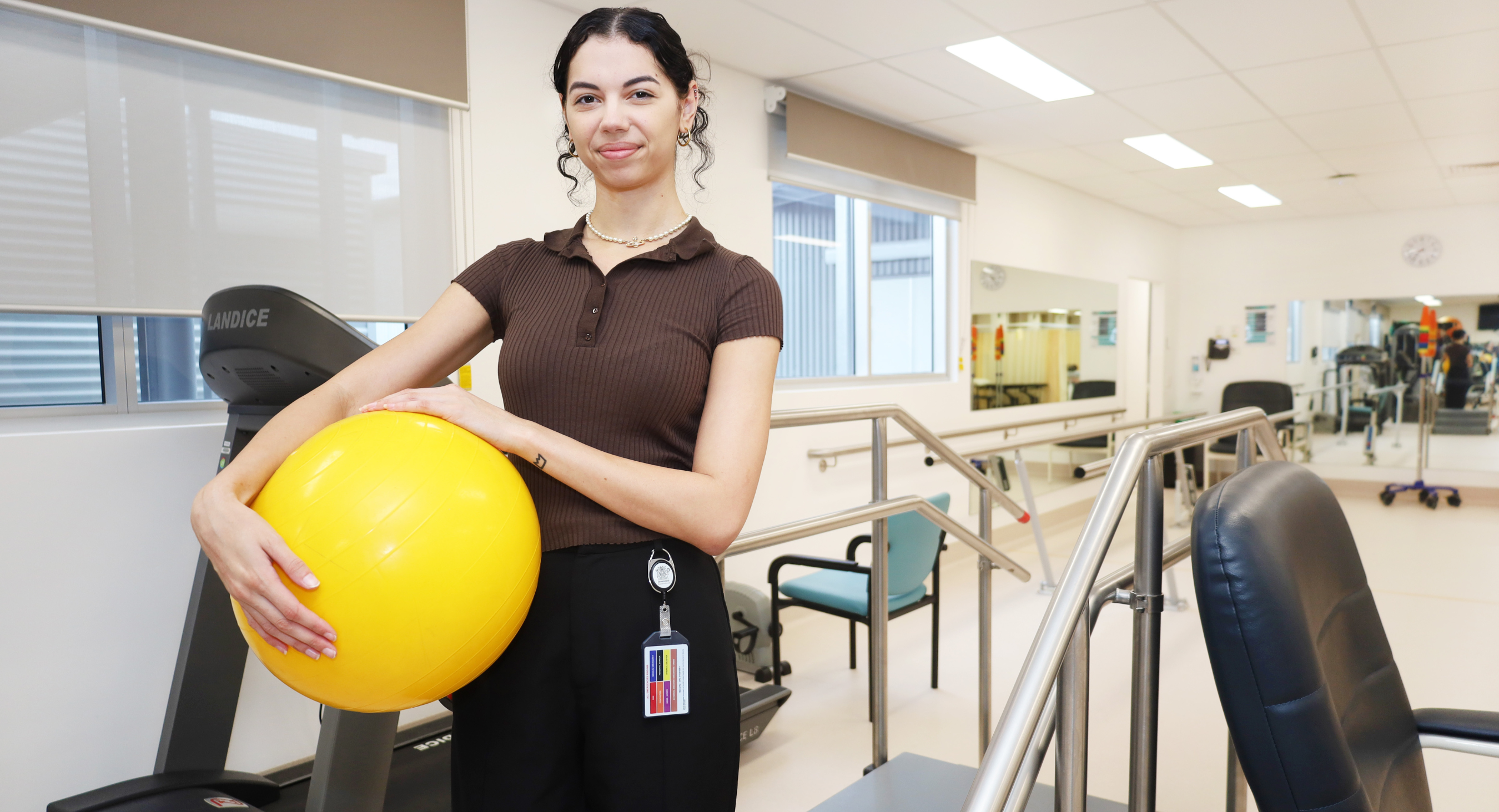
First Nations Allied Health students are getting a jumpstart on their careers at QEII, thanks to a new partnership with the statewide Aboriginal & Torres Strait Islander Cadetship program.
This February, first-year Physiotherapy student Tanika (pictured) became the first Cadet to join QEII under the program, where she will gain valuable hands-on experience alongside QEII’s experienced Physiotherapy team.
Tanika’s journey to Physiotherapy started in 2020 when she graduated high school and set out in search of a career in healthcare.
“I knew I wanted to do something in healthcare, but I wasn’t sure what I wanted to do,” Tanika explained.
After exploring options in dentistry and taking a gap year, it was Tanika’s family and her own love of sports that inspired her to make the switch to Physio.
“I was always interested in working in healthcare. My mum has worked in the hospital setting for a long time, and my sister has been a Physio for a decade.”
“My sister was really hyping the Physio pathway. I also have a sporting background and I’ve worked with Physios in rehabilitation a lot, so I decided to go in that direction,” she explained.
Just a month into her QEII journey, Tanika has embraced the QEII experience while already gaining exposure to various physiotherapy settings including Outpatients, Orthopaedics and Women’s Health.
“Originally, I wasn’t really aware of all the different areas within Physio. Being in this Cadetship gives me a better view into all the different things that I can go into, which is really valuable,” she said.
QEII Director of Physiotherapy Mark Nelson says the program will support more First Nations students into the healthcare workforce, while offering them valuable and practical experience while they study.
“One of the benefits of the Cadetship is that the cadets gain early exposure to real patients and experienced physios while undertaking their university studies. As the cadets develop their skills, they can actually be involved in patient care which benefits both the cadet and the physio department,” Mark said.
Tanika echoed the sentiment, eager to grow her knowledge in the hospital setting and try her hand at different specialties.
“I’m still getting my bearings, but with a bit more experience and observation, I look forward to being more involved with patient exercises and rehabilitation activities,” she said.
While Tanika hits the ground running at QEII, Mark and the team look forward to supporting more students like her as the partnership with Griffith University grows.
“This is the first time we’ve had a physio cadet at QEII, and a first for the Allied Health Department, so we’re excited to have Tanika on board,” he said.
“The great thing about the Cadetship program is that it continues throughout the cadet’s university degree. Having that exposure throughout their degree will give cadets a better grasp on how the healthcare system works and where physio fits in amongst the larger healthcare team meaning they’ll have a head start when it comes time to go on prac and then enter the workforce.”
Special thanks to the QEII Allied Health Department and Mark Nelson for their ongoing support.